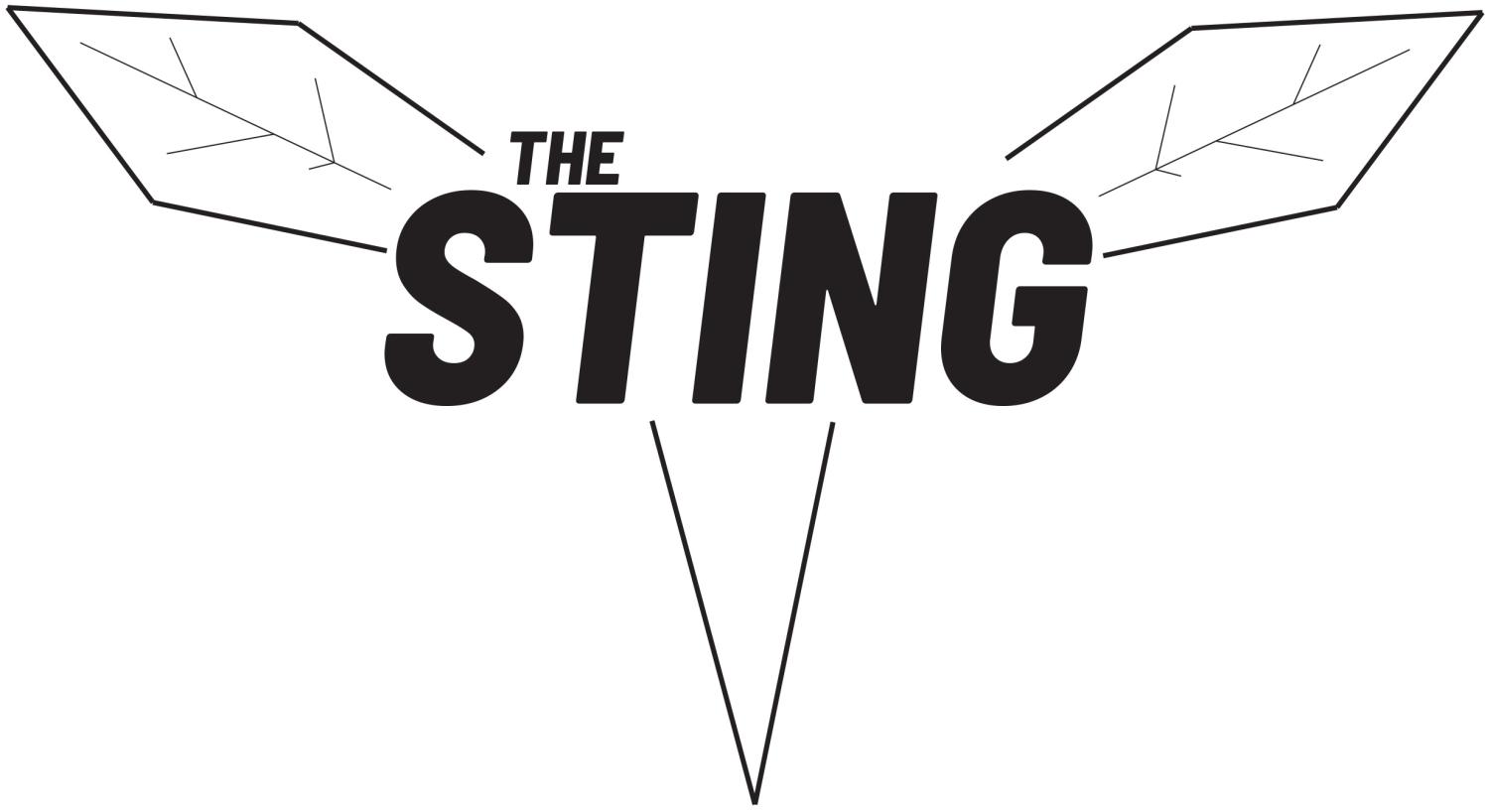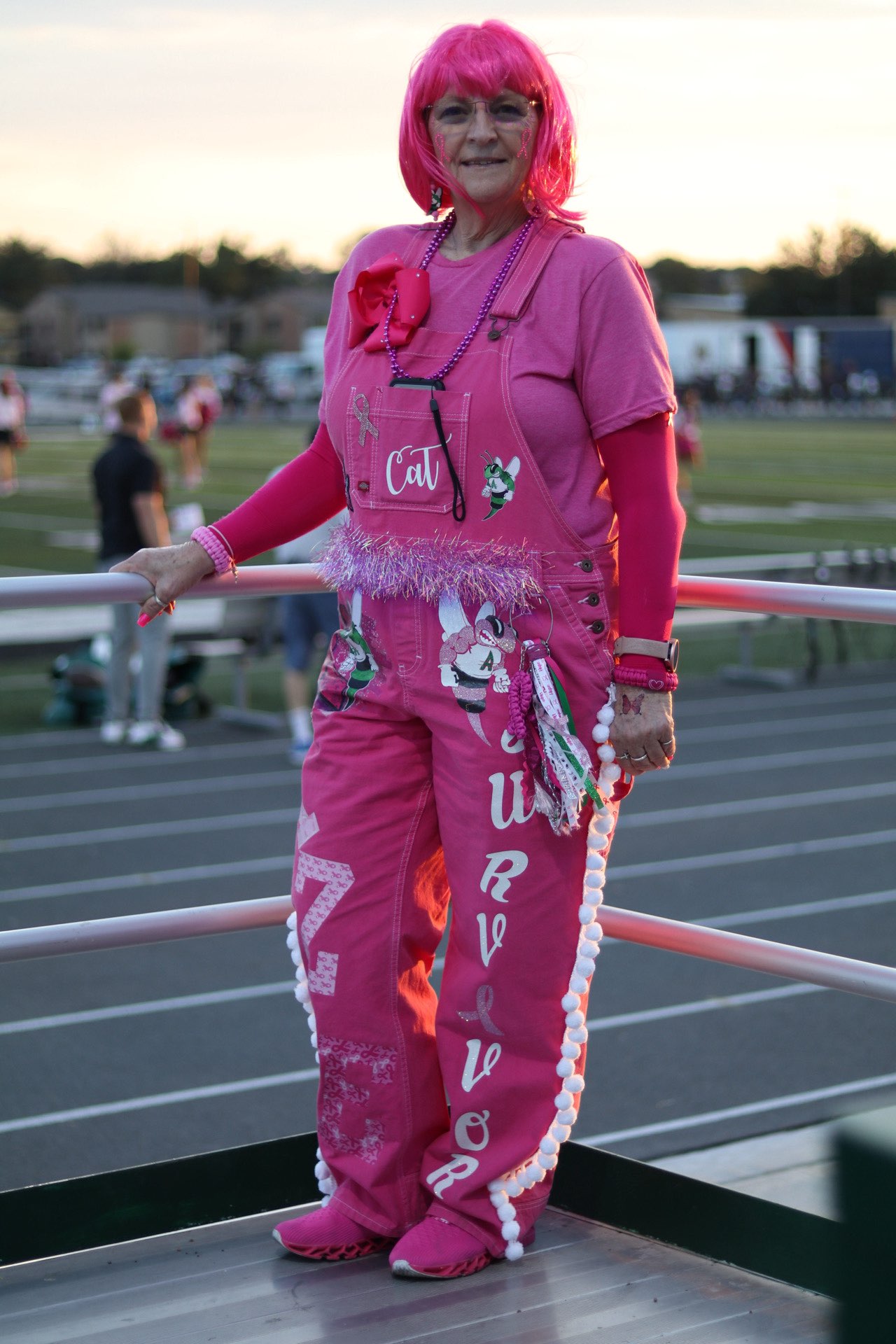“Never give up.”
That’s the advice special education teacher Cathy Markham shared for people battling breast cancer after 22 years of being breast cancer-free.
Every October, pink ribbons appear all over the community for Breast Cancer Awareness Month. It shines the spotlight on a disease that has impacted millions. For some people in the community, the meaning goes deeper than just pink ribbons. This month represents the battles fought and the losses of loved ones.
Breast cancer is a disease that develops in the breast tissue. According to the Breast Cancer Organization, over 2 million women are diagnosed with breast cancer each year, and fewer than 1% of cases in males are diagnosed per year.
“It was November of 2003, the shock of my life,” Markham said. “I was 45. I felt a lump in my breast. I had the hardest kind of breast cancer to detect. If you didn’t know what you were looking for, you would miss it. When I was like 30, it was there, but it was missed, so by that time it had gotten to stage four. I knew that if it had been found earlier, I wouldn’t have had to go through six months of chemo and nine weeks of radiation.”
Unfortunately, not all stories end in survival. Health science teacher James Rider lost his mother to the disease.
“My mom and I were really close,” Rider said. “She was thirty-one when she was diagnosed, so I was seven years old. Most of my memories of our time together were while she was fighting cancer. She fought it daily for five years, then went into remission and was in remission for many years. One of the things that I think helped with her treatment is that she was stubborn. You kind of have to be when you’re dealing with that for 16 years. Toward the end, when the cancer had returned, it had invaded her bones. She had multiple fractures in her pelvis and spine. She still went to work. She got up every day and did what she needed to do.”
A freshman who wished to remain anonymous said their older sister, Maria, who passed away, had challenges on top of her breast cancer that made it harder to overcome.
“From what I can remember, Maria was really kind, pretty, super funny and she liked to dance,” the freshman said. “We danced together at the same studio. She got sick when she was like 19, and then passed away when she was 22. She passed away when I was in fifth grade. She was undocumented, so she was deported. She couldn’t get the treatment she needed in Mexico, so it was a lot more painful for her. But she didn’t pass away from the cancer itself. She ended her own life because it was too much for her to handle.”
While there were some barriers communicating with their sister, they still found ways to hold onto the moments they shared.
“The people watching her over there were my aunt and my tios (uncles),” they said. “They would describe her as really lifeless. It’s sort of as if she was already gone while she was still alive. Sometimes I look through her phone and wish she was still here, and that I got to grow up with her. It’s upsetting because she was really amazing. She did have some pictures of me and her when we used to dance, and it’s really nice looking back at those pictures.”
After living several years with his aunt in Ranger, Texas, sophomore Ayden Freeman later moved back to his hometown, Graham, Texas. Their time together became especially meaningful, even with the space between them.
“She was diagnosed at 30, and I was 9 years old at that time,” Freeman said. “She battled cancer for two years. We were really close. The hardest part was not being there as much as I wanted to be. She lived about an hour and a half away from me, so I couldn’t see her.”
To raise awareness, some participate in activities ranging from going all out and wearing pink to hosting events supporting breast cancer and its survivors.
“I work the football games, and I do the pink out,” Markham said. “I have pink overalls, pink hair, pink eyelashes, and all that stuff. I also donate, I do the walks, I buy the pink-out shirt, I do everything that is for breast cancer. I’m all for it. I want there to be a cure for cancer. There’s a lot of people out there that are going through the same thing I did, and there are some not making it.”
The more people who know about breast cancer and its signs, the more lives can be saved.
“I think because my mom was diagnosed so early that I feel this pull, and my wife does too, to educate others about breast cancer awareness and the early warning signs, self-examinations, things like that,” Rider said. “We’re big advocates for that, especially during the month of October.”
Breast cancer affects all kinds of people, despite age or background.
“I think with a lot of illnesses, a lot of people have misunderstandings that it’s for older people,” Rider said. “Or, that these are things that happen later in your life. Specifically for us, that was not true. Smoking has a strong connection to lung cancer. Well, we don’t know what has a strong connection to breast cancer. From a health science teacher’s standpoint, one of the big misconceptions about breast cancer is that only women can get it. That is not true. Males can get breast cancer. It’s a much lower incident rate, but it is possible.”
Anyone who’s battling breast cancer should remember that they are not alone in the fight.
“My family, my friends, my coworkers, my neighbors, I couldn’t have done it without everyone,” Markham said. “And even strangers, you know, you go to these ‘Relays for Life,’ it’s people who have been through the same thing, and we’re here for each other. My motto was, ‘I can do this, and I am going to do this.’ I had a lot to live for. It is the hardest thing that I’ve ever done in my life, and I wouldn’t wish it on my worst enemy.”
Being on top of getting your annual check-ups is extremely important. Detecting cancer early can make a major difference in one’s life, so don’t hesitate to schedule that appointment.
“Some of [the women] are scared,” Markham said. “That’s the reason why a lot of them don’t go and do their mammograms. They just try to overlook it. [They say,] ‘Oh, it’s nothing.’ There’s no need in overlooking it because you have to take care of yourself. Have all your monthly exams that need to be done at an early age, because cancer is starting to hit even in infants. It’s something to be aware of.”

